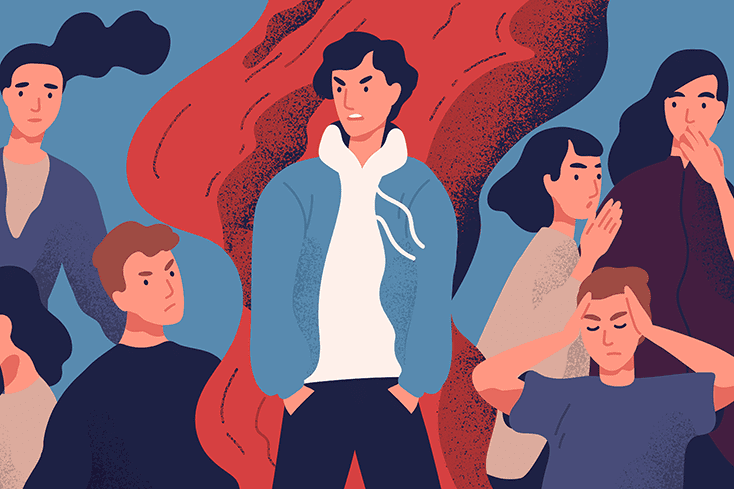Previous research shows that people who identify as narcissistic are more likely to be drawn to and believe in conspiracy theories.
Based on an analysis of previous studies, a new study offers 4 possible reasons for this: feelings of paranoia, naivety regarding claims about what is true or false, the need to be dominant, and the need to be unique. All of them may play a role in establishing this link between narcissists and conspiracy theories.
Researchers suggest that each of these psychological processes is linked to different components that make up narcissism.
- The Phaistos Disc: One of Archaeology’s Greatest Mysteries
- Behind the scenes of Dugin’s assassination that stirred Russia!
These components include active extroversion (trying to boost the ego and gain admiration through charm and daydreaming), antagonism (being arrogant, exploitative and entitled) and neuroticism (experiencing low self-esteem and shame).
“We think that each of these components of narcissism may predispose people to support conspiracy theories due to different psychological processes,” the researchers write in their published paper.
First, there is paranoia, the tendency for narcissists to believe that other people are out to get them and are deliberately trying to be harmful. This makes it easier for them to believe some conspiracy theories.
The second is the need for dominance and control. This need in narcissists can make conspiracy theories attractive as a way to shift blame by using a different group as a scapegoat for something that went wrong.
The third process, the narcissistic need for uniqueness, can be associated with conspiracy theories because these theories promise access to privileged or secret information that is not publicly available, making those who believe in them more special.
Finally, there is gullibility, being cautious makes one more susceptible to unreliable and manipulative information and is linked to narcissistic people’s tendency to be more gullible and less prone to cognitive reflection.
The researchers also talk about how these results can be used. Narcissism tends to be higher in politicians than in the general population, which means that those in government are in danger of being more susceptible to conspiracy theories.
Narcissists tend to consider themselves qualified for politics and to consider running for office.
The researchers also suggest that the psychological processes they analyzed could also apply to collective narcissism – for example, the need to believe that a certain group of people are special and unique.
Options for future work include looking at how narcissists share and promote conspiracy theories (e.g. on social media) and how these findings might relate to other false or deliberately sensationalized information other than conspiracy theories.
“Narcissists’ desire for approval and recognition may have implications not only for their beliefs but also for their behavior,” the researchers write.
The research was published in Current Opinion in Psychology.

